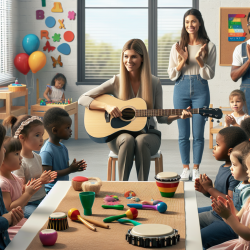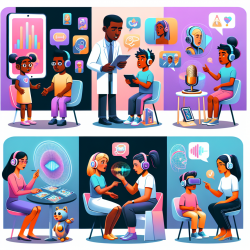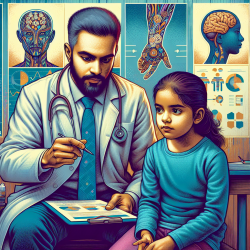Music therapy has emerged as a promising intervention for children with developmental disabilities, including autism spectrum disorder (ASD). A recent study titled A Preliminary Investigation of a Specialized Music Therapy Model for Children with Disabilities Delivered in a Classroom Setting provides valuable insights into how music therapy can be effectively implemented in a classroom environment to improve communication skills. This blog aims to help practitioners enhance their skills by applying the outcomes of this research.
Key Findings from the Research
The study investigated the Voices Together® music therapy program, focusing on its impact on verbal responsiveness among children with ASD and intellectual disabilities. The participants were divided into two groups: a long-term group that received 15 weeks of therapy and a short-term group that received 7 weeks of therapy. Here are the key findings:
- Both groups showed increases in verbal responses over time.
- Significant improvements were observed only in the long-term group.
- The therapy involved 45-minute weekly sessions conducted in a classroom setting.
Implementing the Findings
Based on these findings, here are some actionable steps practitioners can take to improve their skills and create better outcomes for children:
1. Prioritize Long-Term Engagement
The study showed that significant improvements were observed in the long-term group. Therefore, it is advisable to implement music therapy programs that extend over a longer period, ideally 15 weeks or more.
2. Structured Sessions
Each session in the study lasted 45 minutes and followed a structured format involving specific songs designed to evoke social and communicative responses. Ensure your sessions are well-structured and consistent.
3. Focus on Verbal Responsiveness
The research highlighted the importance of verbal responsiveness. Use songs and activities that encourage verbal interactions, such as greeting songs or those that require participants to express their feelings.
Encouraging Further Research
While the preliminary findings are promising, more research is needed to validate these results. Practitioners are encouraged to conduct their own studies or collaborate with researchers to further investigate the efficacy of music therapy in different settings and populations.
To read the original research paper, please follow this link: A Preliminary Investigation of a Specialized Music Therapy Model for Children with Disabilities Delivered in a Classroom Setting.










